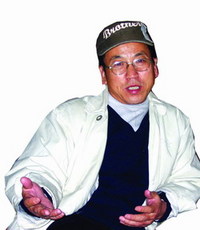 Sometime overnight,
Sometime overnight,
Biganzi/CDT has learned, Internet authorities ordered a blackout on the subject of freed ex-journalist Gao Qinrong [see earlier post]. “We’re not allowed to run the story anymore,” the editor of a major Internet portal said on Monday. “It [the ban] appears to be fairly comprehensive.” In Beijing, Gao’s name in Chinese (È´òÂã§Ëç£) no longer appeared to be searchable on Sohu or Sina, Baidu or, in most cases, Google (and when it was, the list of results was decimated). Rumors are floating online of consequences that could face Southern Metropolis Daily or Southern Weekend (as noted by ESWN) for their interviews with Gao, which triggered a buzz of commentary on the perilous state of the Chinese press – see Joel Martinsen’s latest translation on Danwei – as well the beginnings of a fresh witch-hunt for whichever officials allegedly framed Gao.
All this hassle to help a few corrupt retired cadres in Yuncheng, Shanxi province, salvage face? Or might Gao’s campaign to clear his name have sparked a much bigger mess? An article published last month on the U.S.-based dissident news site Boxun, for instance, contends that, back in 1988, then-Vice President Hu Jintao’s secretary Ling Jihua (‰ª§ËÆ°Âàí, now vice-director of the Communist Party Central Committee’s General Office) took a bribe of 10 million RMB in exchange for ordering Shanxi province government to arrest Gao. Even though the report is thoroughly unsupported, it’s out there on Google in China. At least until today it was.







